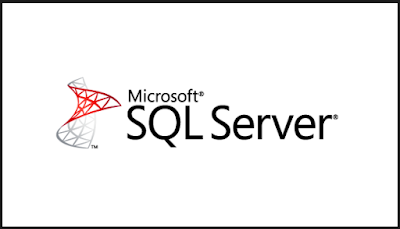In this database tutorial, I will continue the discussion about SQL Server. What is SQL Server? What is SQL? What is SQL for? How does SQL work? What are the advantages and disadvantages of SQL Server? I will try to answer these questions one by one so that you are clearer with SQL Server.
After a few days I updated my MySQL database tutorial, this time or even a few days in the future I will discuss about SQL Server and hopefully the database tutorial provided by Javanet Media will be more complete and add to your knowledge. Hopefully it can be implemented in the world of education or the world of work.
1. Understanding SQL SERVER
Before I review the understanding of Microsoft SQL Server, I will try to break it first.
1. SQL is the abbreviation or short for Structured Query Language.
2. SQL SERVER is a relational database management system (RDBMS) designed for applications with a client / server architecture. The terms client, server, and client / server can be used to refer to a very general concept or a specific thing of hardware or software. On a very general level.
So in general, SQL Server is a software created by the Microsoft company that is used to create a database that can be implemented for the Client Server.
CLIENT is any component of a system that requests services or resources from other system components.
SERVER is any system component that provides services or resources to other system components.
Then in the previous meaning there is the word RDBMS. Here's the explanation:
RDBMS stands for Relational Database Management System.
RDBMS is the foundation for SQL, and for all modern database systems such as MS SQL Server, IBM DB2, Oracle, MySQL, and Microsoft Access.
Data in RDBMS is stored in database objects called tables.
TABLE is a collection of related entry data and consists of columns and rows.
2. Definition and SQL Functions
As explained above, SQL stands for Structured Query Language, which includes the following functions:- SQL allows you to access and manipulate databases.
- SQL can execute queries against the database
- SQL can retrieve data from database
- SQL can insert data in a database
- SQL can update data in a database
- SQL can delete data from the database
- SQL can create new databases
- SQL can create new tables in the database
- SQL can create stored procedures in a database
- SQL can combine multiple tables in a database
- SQL can set permissions on tables, procedures, and so on
3. Why We Should Learn SQL Server
The reasons why you should learn SQL Server and why the Javanet Media website is discussed in detail about SQL Server? In the previous tutorial, I made a VB 6.0 and VB .NET tutorial using a SQL Server database.
Why should you learn SQL Server:
1. SQL Server is a product from Microsoft, so if you use Windows, then the programming language with Visual Studio, and your server uses Windows Server OS, all of which use products from Microsoft, it will be easy to configure in account and very compatible because it comes from the company the same one.
2. SQL Server Has Privileged Access or access rights that are used to access the database on SQL Server. Therefore, if you use a domain on the Server, SQL Server is very supportive with one login door, you can access many applications from Microsoft products
3. For the World of Work SQL Server is widely used in large companies. For those of you who are still in the world of school or college, working in a large company is a dream. So if a large company uses SQL Server, if you can operate SQL Server, the opportunity to enter the large company will open.
Those are some reasons why you should learn SQL Server
4. Pros and Cons of SQL Server
The advantages of SQL Server are that SQL Server is very powerful and is widely used in large companies because it is very powerful for the concept of Client Server. Apart from having advantages there are definitely drawbacks. What does SQL Server lack?
Yappp SQL Server is a paid software. SQL Server is not free, therefore only large companies can afford to use SQL Server. Although there is a free SQL Server, the Express version, but many features are incomplete than the paid version.
5. What should be learned in SQL Server
Learning SQL Server is interesting, there are some differences if you frequently use MySQL. On the Javanet Media website, I will give it step by step so that you understand better and are more consistent in learning SQL Server.
Thus the discussion about the Definition and Function of SQL Server. Hopefully it can be understood and follow the tutorial SQL Server Next.Apart from being a programming information medium, we also share articles related to Android trick tips.

0 Response to "Explanation and Functions in SQL Server"
Post a Comment